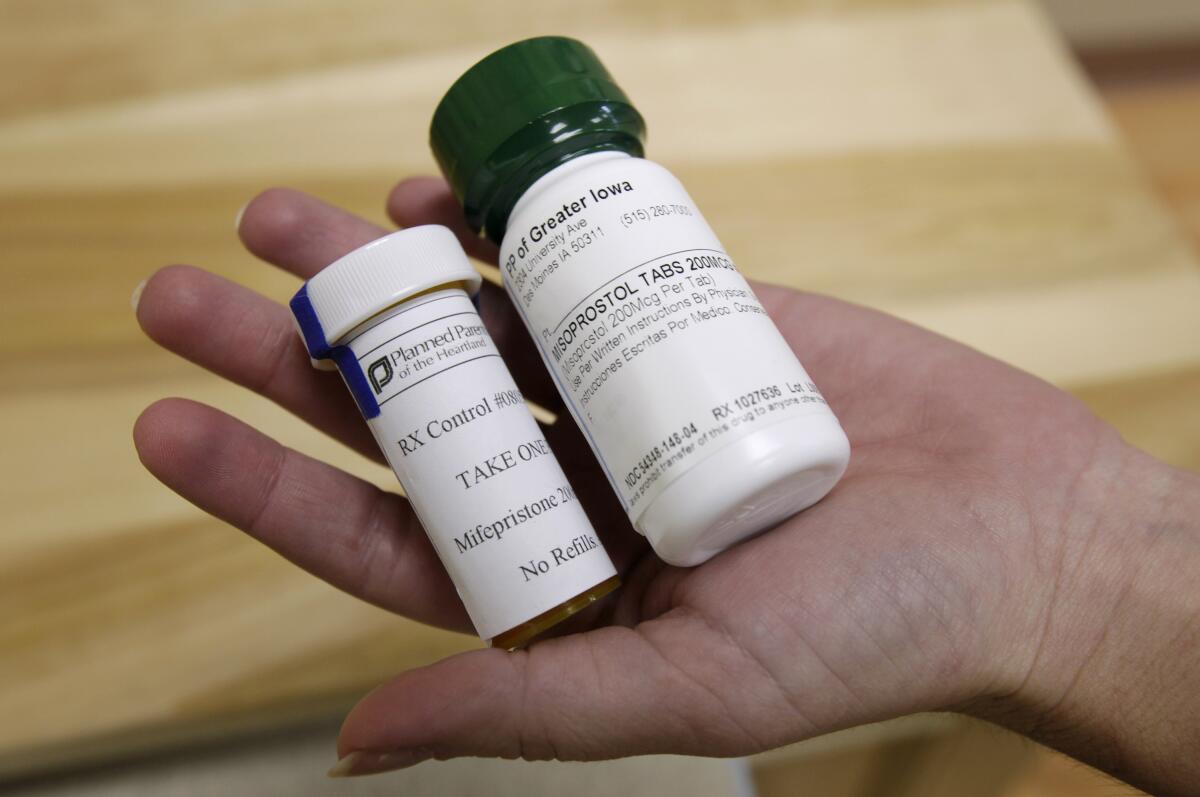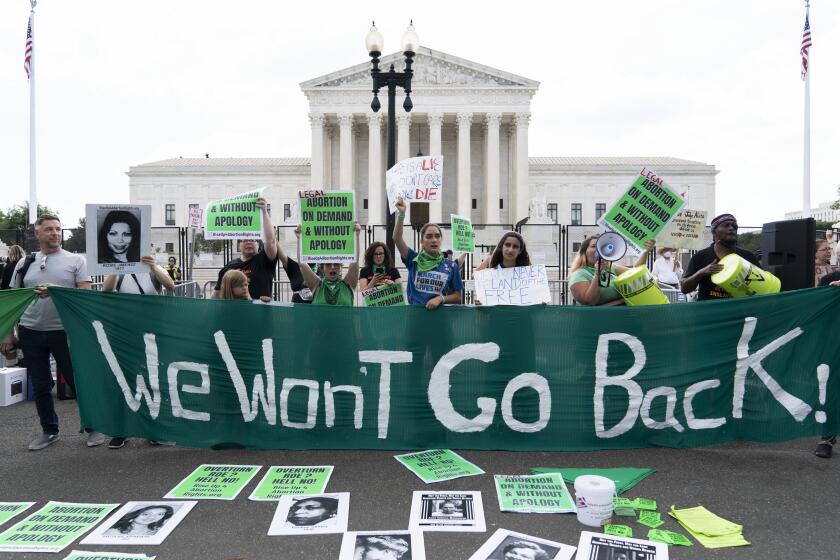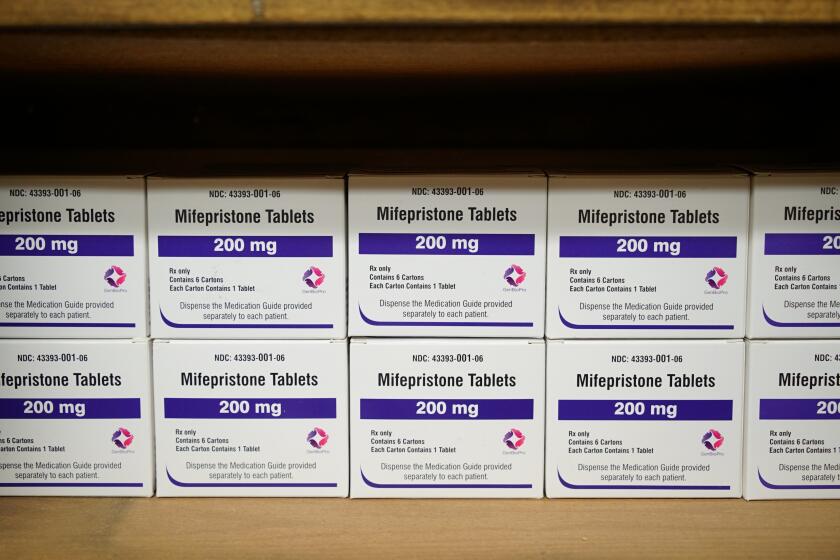Editorial: Abortion opponents are trying to revoke FDA approval of a drug. Thatâs scary

In the post-Roe world, one of the prime targets of antiabortion activists is medication abortion, a two-drug regimen in which a pregnant person takes mifepristone followed by misoprostol.
A lawsuit filed late last year by abortion opponents in an Amarillo, Texas, federal district court asks Judge Matthew Kacsmaryk, a conservative known for his antiabortion views, to revoke the U.S. Food and Drug Administrationâs approval of mifepristone. They argue the agency didnât properly study the drug and has removed âeven the most basic precautionary requirementsâ associated with its use. Kacsmaryk is expected to issue a ruling any day now.
For the record:
4:48 p.m. March 7, 2023And earlier version of this editorial incorrectly said misoprostol, when used alone, has a success rate of up to 97%. The drug is effective up to 95% of the time.
The claim is weak given that medication abortion has been available in the U.S. since 2000, is currently used for more than half the abortions in this country and is exceptionally effective and safe (with serious adverse effects occurring in less than a third of 1% of the abortions). If anything, healthcare providers and researchers believe it has been overly regulated. For years, obtaining a prescription for abortion medication required at least one in-person visit and was available only in certain healthcare settings and under certain conditions. Recently the FDA expanded the rules to allow telehealth visits to get a prescription and allowed the drugs to be dispensed through pharmacies that meet certain qualifications. (However, on Friday, Walgreens, one of the nationâs largest retail pharmacies, bowed to pressure and announced it would stop providing mifepristone in 20 states where attorneys general are challenging the legality of its use.
Since the Supreme Court struck down the right to choose, thereâs been tremendous uncertainty and confusion. But efforts are already underway to find new ways to protect that right.
Lawyers for the Department of Justice and the FDA contend that the department comprehensively evaluated mifepristone before approving it for medication abortion. In court documents, they say the agency âreviewed three separate clinical trials involving more than 2,500 pregnant patients, and those trials provided substantial evidence of effectiveness and showed a low rate of serious adverse events.â The FDA also defended the drug as offering âa meaningful therapeutic benefit to some patients over surgical abortionâ because it avoids an invasive (although very safe) surgical procedure for abortion.
If the judge revokes the FDAâs authorization of mifepristone, lawyers believe that would be unprecedented. âWe are not aware of any case in which a court has removed a drug from the market over FDAâs objection,â a group of food and drug law scholars wrote in an amicus brief for the FDA.
It would also be another medically baseless attempt by abortion opponents to deny healthcare access to pregnant people. Nearly half the states in the country have abortion bans or such tight restrictions that they severely limit access. Now antiabortion activists are trying to slap restrictions on abortion access in states where it is allowed and protected.
Thankfully, pulling mifepristone, which is used mainly for abortions and miscarriage care, off the market wonât stop medication abortions, though it could sow confusion and disruption across the nation. The second drug, misoprostol, can be used alone for abortions, though it is slightly less effective. It is not subject to the same restrictions because it has other clinical uses, such as treating gastric ulcers.
With abortion care virtually inaccessible in 13 states, itâs imperative to remove barriers where it remains legal.
The two-drug regimen works up to 99% of the time while the misoprostol-only regimen works up to 95% of the time, according to Lauren Kokum, director of affiliate communications for Planned Parenthood Federation of America. The organization allows its 49 affiliates that run 600 healthcare centers in the U.S. to use misoprostol alone.
Meanwhile, state legislatures continue to pile more restrictions on abortions. Iowa lawmakers introduced a bill recently that not only would ban abortion but also would add the ludicrous requirement that internet providers block peopleâs access to websites related to abortion care while they are in the state.
The extreme lengths to which antiabortion activists will go should trouble everyone who cares about the exercise of civil rights, particularly the right to control your own body. These assaults on abortion access will continue either until every state has a constitutional amendment guaranteeing a right to abortion or until Congress passes a national law allowing abortion in every state. Think about that the next time you vote for a member of Congress.
More to Read
A cure for the common opinion
Get thought-provoking perspectives with our weekly newsletter.
You may occasionally receive promotional content from the Los Angeles Times.












